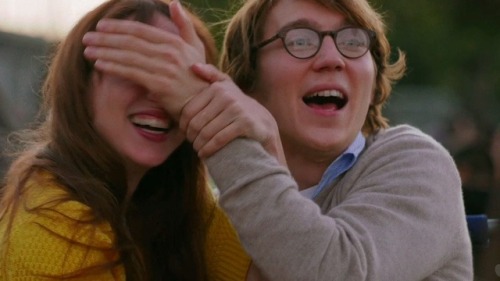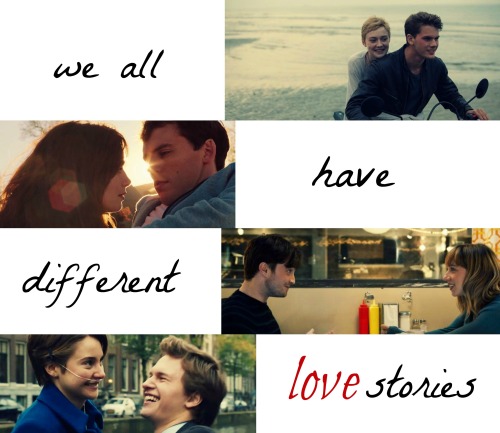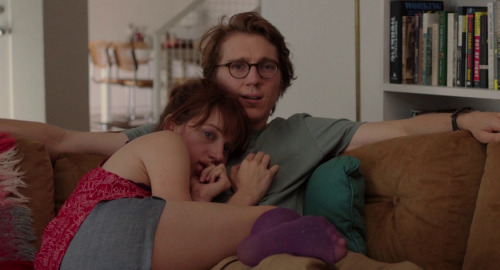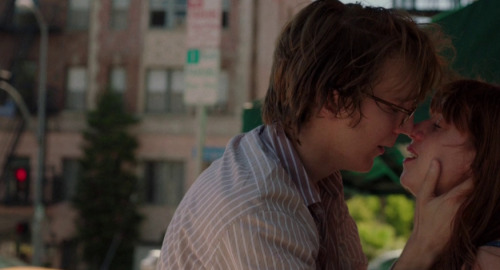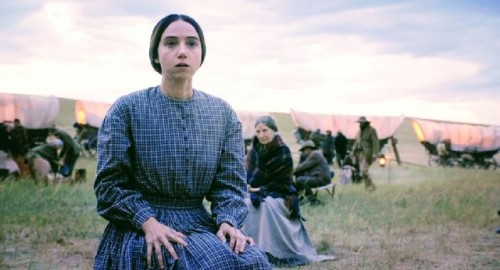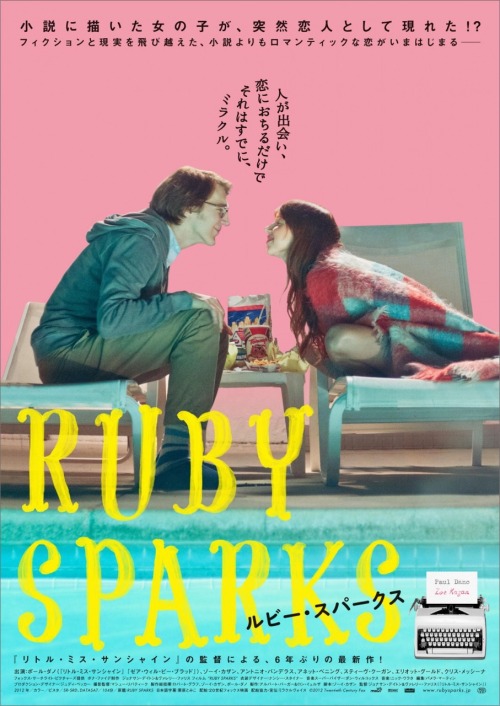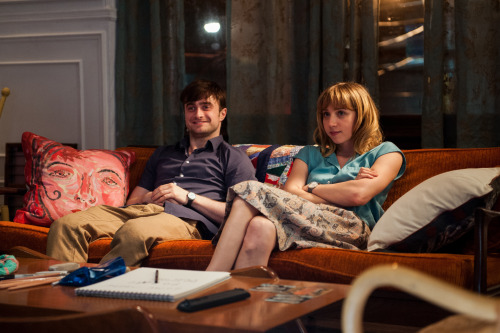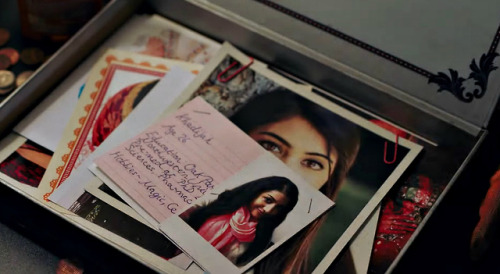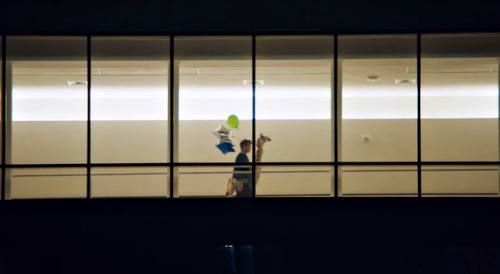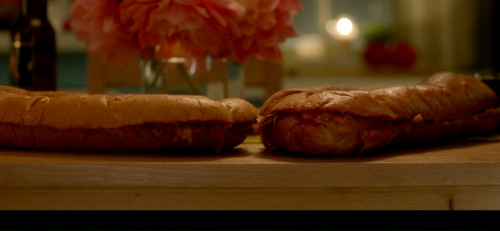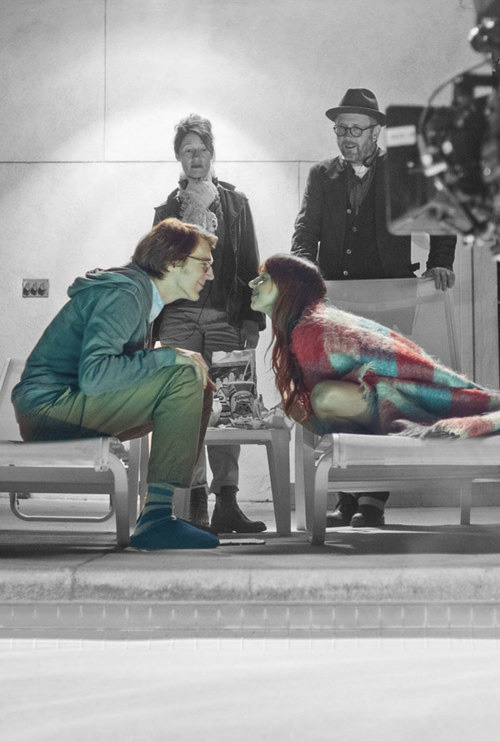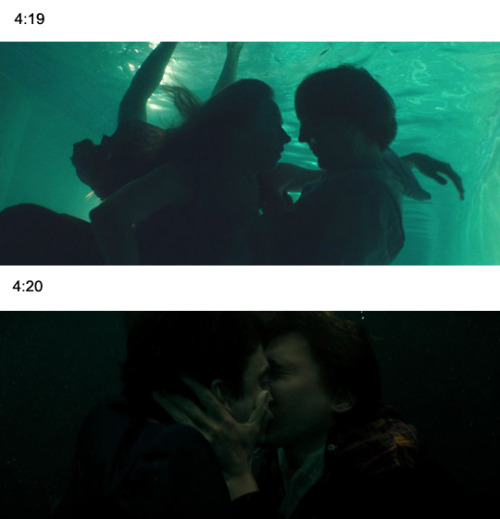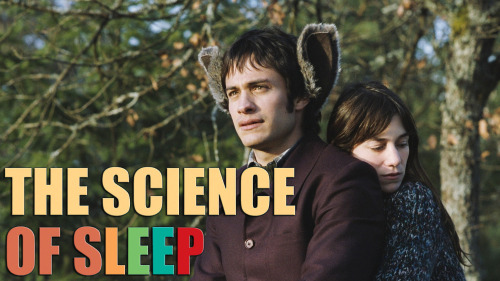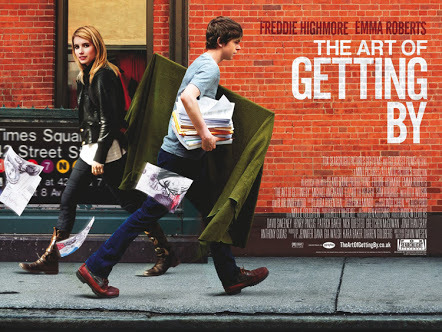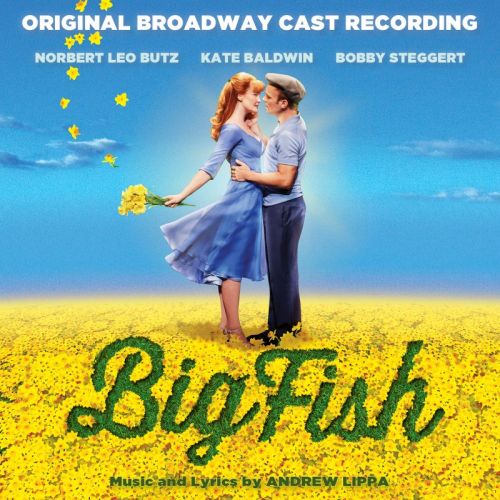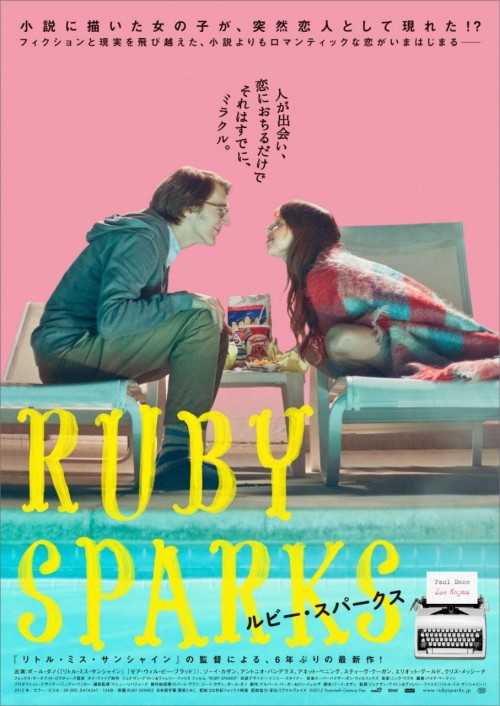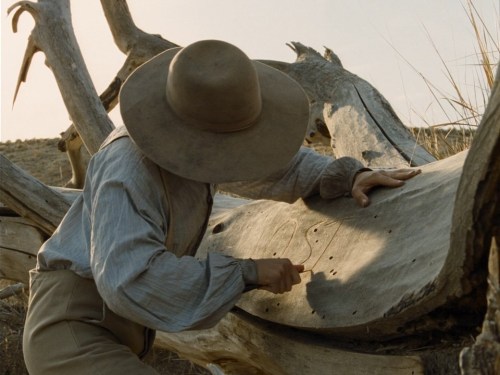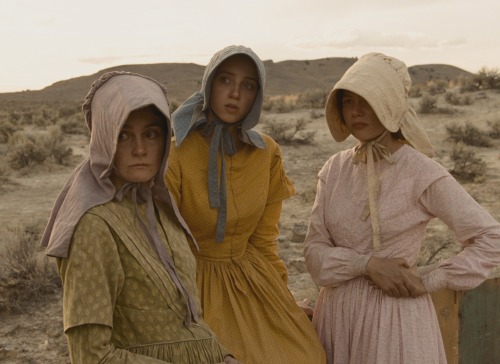#zoe kazan
Ruby Sparks IS a manic pixie dream girl… and that’s okay. Zoe Kazan, the writer of Ruby Sparks, is emphatic that the movie is not a conscious response to the Manic Pixie Dream Girl, but she adds that “I’m very happy to have this movie read as a critique of that, if that’s how you want to read it.”
And that’s exactly how I want to read it, because Ruby highlights the dangers of treating women like characters who exist “solely in the fevered imaginations of sensitive writer-director[s].”
Post link
“Uncertainty—that is appropriate for matters of this world. Only regarding the next can we vouchsafe certainty. I believe certainty regarding that which we can see and touch, it is seldom justified, if ever. Down the ages from our remote past, what certainties survive? And yet we hurry to fashion new ones, wanting their comfort.”
- From The Ballad of Buster Scruggs
Post link
Si la condition sine qua non de toute romcom réussie est une question d'alchimie, “What if” gagne son pari. Pour un film twee, difficile de trouver mieux que Radcliffe/Kazan, même physiquement, vu leur bouille de gamins à tous les deux.
“What if” de Michael Dowse (2013), avec Zoe Kazan et Daniel Radcliffe.
Post link






What If // 2013

Story of my life.







It’s very easy to be cynical about love until you’ve had that instant connection. If you’re lucky, it happens once in a lifetime.


Everyday problems


If you listen closely, you can hear their happiness.



If you have a very bad day, I’ll be always there for you.








The drumroll in your chest
The blood pumping in your head.
When the distance between you is almost nothing and everything at the same time.
❤ 1• THE SLEEP OF SCIENCIE • (La ciencia del sueño) http://youtu.be/GUCrM5i_W3c 2 •THE ART OF GETTING BY• (El arte de pasar de todo) http://youtu.be/N9tMK4FoXJs 3 •BIG FISH• (El gran pez) http://youtu.be/rsZdOlTbcng 4 •RUBY SPARKS• (ruby sparks) http://youtu.be/6cQODwif8VY 5 • A LOT LIKE LOVE• (muy parecido al amor) http://youtu.be/SXp1SkLlLUs . . 6 • IF I STAY• (si decido quedarme) http://youtu.be/xRYdOPR9NZI❤
Post link

Six years after ‘Little Miss Sunshine’, married directing duo Jonathan Dayton and Valerie Faris return with 'Ruby Sparks’. Written by and starring Zoe Kazan in the titular role alongside off-screen boyfriend Paul Dano, it tells the story of a frustrated writer who manifests a woman in his mind only to find she comes to life. Strange, sweet and original. I sat down with Dano and Dayton to talk about the complexities of the concept and 'Weird Science’.
HOW DID THE FILM COME ABOUT?
Paul Dano: Zoe saw a mannequin in a trash can and thought it was a person, which made her think about the Pygmalion myth. Essentially, that night she had a dream, woke up and wrote down the start of it. She showed stuff to me and we thought we could maybe do it together. She kept writing but very early on, maybe fifteen pages into it, we thought of Jonathan and Valerie. So always, we had them in mind as who we’d send it to when it was finished and luckily they said yes and we started the process.
Jonathan Dayton: It’s funny because it came with Paul and Zoe attached and we were really nervous to read the script because, the idea of working with Paul again, and we loved Zoe, so we really wanted to love it. And we did. It was everything we were looking for.
We’d worked on various films since Little Miss Sunshine but this was about something, it was funny, it explored love and control and it felt like the perfect film to do with these guys.
WAS IT IMPORTANT TO YOU THAT PAUL AND ZOE PLAYED THE MAIN CHARACTERS?
JD: Yes, Paul and Zoe were attached but we were really excited about Paul doing this role. It felt different from other things that he had done, but we felt he was really well suited for it. This is the first time Paul and I have done an interview together so I could usually say this about him without him being here, but Paul is one of those rare actors who can actually do comedy and drama. He can turn very quickly from one colour to another. We were excited that he could be this lead. And Zoe, even though she’s known in the States, it was exciting that for a lot of people, this would be the first time they see her, that she could be this character, and be this revelation.

THERE’S A CONCEPTION ABOUT THE GENDER POLITICS IN THE FILM OUT THERE - IT’S WRITTEN BY A WOMAN BUT THE LEAD CHARACTER IS A MAN…
JD: I would say that, first of all, both Paul and Zoe are playing lead characters and I don’t think that Zoe sought in initially writing this to do a treatise on gender politics. It was certainly inherent, but there are certain writers who’s job it is to engage in those debates, and I welcome them, but I certainly want to reduce the film to being a treatise. First and foremost, it’s entertainment, then an exploration, something that I don’t hope to be the final word but it does, and I have to say excited that it would, challenge certain ideas of “the manic pixie dream girl.”
It’s been interesting that in Europe that’s been less of a topic of discussion, and that’s a bit of a relief. I don’t want the debate to dominate. This isn’t homework, it’s something that people can enjoy and hopefully identify with. But, yes, that’s part of what this film is - an exploration of gender politics. The exact message, I’d rather not characterise. There are a couple of good articles that have been written about it, but they have trouble with the ending of the movie. They feel like it somehow turns on the fact that Calvin should be punished more. It made me laugh, almost, because maybe for women, that’s their perspective, but for men who make up a good part of this audience, we want to see Calvin given another chance.
Who knows what would happen after the end of the movie, from the end forward? It’s not just her story. It’s a story for both men and women. He’s going to have to earn anything that happens. Whether or not he’s changed, we can all decide, but he has a shot and anything that happens is going to be up to the two of them.
One of the things that was so critical about working with Zoe was that not only was she a a good writer, she’s a great rewriter. Like all films, it’s ultimately the expression of all of us coming together to take a work in its own right and then to make a film. So it evolved. What was important to us was that we loved her voice and she was so incredible about preserving that voice and keeping it alive for the rewrite. A lot of times, writers feel “I’ve written it, that’s what I have to say about the subject” but with Zoe, as we talked about the film we were all going to make, she was excited and constantly coming up with great new ideas. So it did change, but it was very much the film we all wanted to make. There was no “If only…”
JONATHAN, YOU AND VALERIE ARE MARRIED AND DIRECTED THIS TOGETHER, DO YOU THINK IT WAS IMPORTANT THAT A COUPLE WAS MAKING A FILM ABOUT A COUPLE?
I was very happy that both sexes were represented, both in the two stars and in the directing team. I would not feel comfortable fully representing a female perpective. To talk about gender politics again, this project really allowed me to be a man bringing my perspective and knowing that the female perspective would be represented, knowing that I didn’t have to anticipate that.

IT’S GREAT TO SPEAK TO BOTH DIRECTOR AND ACTOR TOGETHER AND TALK ABOUT THE PROCESS OF BRINGING THE PAGE TO THE SCREEN…
PD: While Zoe was writing I tried not to think too much about the character because if we talked about it, it made it to be about the film and not me as an actor. Performance is not worth much unless the film is good, or at least I think so. Luckily, the words were good, and that actually makes your imagination much more alive. It was really fun to look at the basic building blocks that the writer gives you and just fill out that whole history and that whole life. So you start to decide that Calvin’s dad gave him this typewriter and he wrote his first book on this typewriter so it’s already this romantic, special object and he’s holding onto the past in some way. This ties into arrested development issues from being called a genius at a young age. That stuff is already there without being spelled out but you can get into it and investigate it and I had Zoe as a resource if I needed it.
When we started to work with John and Val, there’s not many film directors who know how to rehearse but their process on this and on Little Miss Sunshine were probably the two best rehearsal processes that I’ve had on film. This time it was rather short, just a few days. Like me, they were not interested in rehearsing scenes but just making sure that there is a history in the relationships, with me and the brother, and with the mother, and having those actors spend some time together.
Jonathan and Valerie also spend time putting themselves into the characters’ shoes so they understand the story and what the two characters, and it is a two hander in some ways, are really going through. I don’t know if this is correct but it seems to me that’s how you would shoot the film, through understanding the motional content of it. I don’t think a lot of directors go their enough. They were very helpful in separating Paul from Calvin and Zoe from Ruby and I remember talking about that. It was nice to have a couple as well, because we developed a relationship where we could talk about love.
JD: It just occurred to me that had it been a single director, perhaps they might have felt like the odd man out, but it was really interesting having two couples talking about love.
Being an actress informs Zoe’s writing. She’s very good at keeping an honesty in the words and in the descriptions because there’s some times that an actor would say “I would never do this. People don’t act this way” but for her as a writer, and for us as directors, it’s an essential part of the process that we act it out. We’re terrible actors, Valerie and I, but in the privacy of our home, or our studio, if we at least try to inhabit those feelings, we know what we’re asking the cast to do and we start to know how you’d move - would you run away? would you keep your distance? - so the blocking starts to come. We really work from the inside out. Instead of saying “What would be a cool shot?” we say “How would they move?” and then “How would we cover that movement?”

DO YOU HAVE A FAVOURITE SCENE FROM THE FILM?
JD: I loved so many things in the film. I loved the moment where they’re sitting at the table, reading the paper and having cereal and she grabs him and says “I miss you right now.” I liked that scene on the page, but that was one of those things where I thought “I don’t know how to direct this” but because they were so connected to the material, they made that scene work. It’s one of the biggest laughs in the movie. Then, the scene I am most proud of is the confrontation scene where he tries to prove to her that she’s a fiction. That scene was so tricky to navigate and really credit Paul and Zoe with finding the truth. Seeing it now, it’s a tough scene to watch, but we worked on it more than any other scene and finding the right place on the page, shooting it and then ultimately editing it and adding the music, it took the finest carving to find this one place.
PD: The best example of what you hope a creative process to be is when you read a scene and think “This scene could be very powerful, it has to work for the film” and you then you film it and the actors make it better than what is on the page. And when Zoe and I saw the scene and we saw what the portrayal of the typewriter does for the scene, for the energy of it, and when you see those keys bashing, and when I first heard the music. You hope that every step of the way it gets deeper and better. That’s the scene that when I watch it, I’m not thinking about acting at all.
JD: It’s the scene where I hope the audience will go with us. It’s the tough scene. It’s the scene where some people go “Wait a minute! This is a romantic comedy - what are you doing to me?” but most people go “Thank you. You’ve taken me out of the formula and to a new place.” It’s where we either lose you or people think they’ve been taken somewhere.
IT’S SUCH A COMPLICATED CONCEPT, DID YOU EVER HAVE ANY CONCERNS THAT IT WOULDN’T TRANSLATE TO THE SCREEN?
JD: We never felt the film was beyond our reach. The execution of the story was so well done. We had two actors, and a whole ensemble, really, who brought so much. The goal when shooting is always “Is this truthful?” You don’t ask “Is it funny, is it tense?” you just ask if the moment is truthful. If you have that as your guide, all of the things you hoped for as you worked on the script will be there. On the set, the question is “Is it truthful?” and hopefully people will find it that way. The miracle of Zoe’s writing was that she was able to take this high concept and make it very real and relatable.

THE MUSIC IS VERY PRESENT IN THE FILM…
JD: I appreciate even just the discussion of music in this because it’s a really important part of the film. It doesn’t get its proper due. Val and I come from a background where the music is there first, from music videos, and then we think about what images would go with it. We did the same process with this. We had a tape of songs that we had no intention of using in the movie but for us inspired certain feelings that we wanted to portray. We played these songs to the cast and we listened to them over and over. There were a few different things, but for some reason we locked in on the Brian Jones Rolling Stones period. She’s a Rainbow was the signature song. There was just a feeling of new love and exuberance and the baroque quality of Play With Fire… it just felt like the right feeling. We then shot the movie, threw those out, and it wasn’t until we tried using a piece of Rigoletto as source music in the scene where he’s cooking and listening to opera that we thought “My god, that’s the answer.” Something in the operatic and orchestral sound was going to serve the drama of the movie, but also struck us as funny. When he’s lying in bed and he puts his arm around the dog, the music just felt like the right fit… So we played that for the composer and he then went and wrote this piece that we just dropped into the movie. He hadn’t even been given the job but the piece where Calvin goes through the clingy Ruby period, there’s this big operatic piece with a falsetto. The composer wrote this piece and it was just perfect and hit the line of the humour and the drama.
SOMEONE I WENT TO SEE IT WITH MENTIONED WEIRD SCIENCE… I’M ASSUMING THAT WASN’T AN INSPIRATION…
JD: (Laughs) There was a line in the original script about Weird Science. I was kind of torn, but it eventually came out. I kept meaning to watch it, and I eventually got to see it after we’d finished shooting. It was so different.
PD: It’s not in there? In the car? Where’s he’s like “Big tits, long legs” - it’s not in there any more?
JD: No, it isn’t. It’s tricky because that you want to acknowledge that you’re in a world where things have happened that are relative but you also don’t want to be quoting other films too much.
PD: I remember showing Weird Science to Zoe while she was writing and I don’t think we even made it half way through. She said “It’s so bad.”
JD: It doesn’t age well.
RUBY SPARKS
Interview: Emma Hurwitz
Images courtesy of Fox Searchlight

